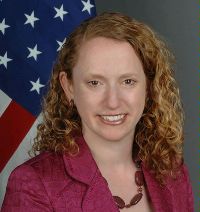2 low-risk ways to seek LGBT rights in Africa
Colin Stewart is a 45-year journalism veteran living in Southern…

Suzanne Nossel, a former U.S. diplomat, proposes two tactics could save the lives of LGBT people in anti-gay countries, especially in Africa, as the battle against homophobia continues there. She proposes:
- Listen to local activists
- Enlist local straight allies
Nossel writes in Foreign Policy magazine:
The Closeted Continent

… The complex geography of the global fight for gay rights poses dilemmas for Western activists and governments eager to break new ground in vindicating rights, but also wanting to minimize the risk of backlash that can inadvertently put gay populations abroad at even greater risk than before.
Although it’s possible that gay rights advocacy is making life worse for gays in the short term, there are steps that may help keep gay people safer around the world and lessen the chance that the current standoff over gay rights goes on for decades.
Listen to local activists
On tactical questions like whether aid conditionality is effective, Western activists and governments should pay close attention to the views of local groups. In 2011, a large group of African social justice organizations issued a statement opposing a proposal to condition British aid, arguing, among other things, that doing so risked alienating local LGBT activists from [potential supporters in] other civil society groups. Although this doesn’t mean that every proposed set of LGBT-related conditions is unwelcome, it does underscore that opinions on the utility of aid conditionality are divided and that local views need to be carefully canvassed and considered.
[Editor’s note: This year, LGBTI activists in Uganda gave mixed messages about aid cuts, with some opposing them and some proposing cuts targeting anti-gay groups such as the Inter-Religious Council of Uganda, which had to lay off all its staff after losing its $34.5 million in U.S. aid.

After the aid cuts, Ugandan President Yoweri Museveni seems to have withdrawn his support for reinstating the Anti-Homosexuality Act, which was overturned in the summer on a procedural issues. In a recent public statement, Museveni denied being influenced by the aid cuts, but worried about whether the anti-gay law would result in the loss of Uganda’s trade partners. The title of his statement was “The way forward on homosexuality. Should we involve Uganda in endless wars with our trade partners on account of this?“]
Identify and enlist local straight allies
A second useful measure involves finding ways to broaden the domestic constituencies in favor of gay rights in places where governments are hostile. If the voices in support of fair treatment are limited to LGBT groups and foreign advocates and governments, they have proved relatively easy to dismiss. But if mainstream domestic social justice and civic organizations, religious institutions, intellectuals, trade unions, businesses, and other constituencies can be mobilized as well, the political price of repression will gradually increase. Rather than applying pressure directly, Western governments can seek opportunities to mobilize international businesses with in-country subsidiaries and partners, liberal church denominations, and academic and intellectual networks to sensitize counterparts in countries on the front lines of gay rights battles.

A way for LGBT activists to lessen the danger of backlash is to build on the canny impulse that put Brazil, Uruguay, and Chile in the driver’s seat of the most recent U.N. gay rights resolution. By supporting representatives of non-Western governments and civil society leaders to engage directly with counterparts in regressive countries, the gay rights movement can continue to counter the construct of gay rights as a Western agenda.
If there were a government willing to fund, for example, a visit of Cuban gay rights activists or supporters to Russia, their message might get through in the way that advocacy originating in the United States or Europe would not. Brazil does more than $12 billion in annual trade with sub-Saharan Africa. If African governments suddenly confronted LGBT rights as an issue in their bilateral relations with Brasilia, they would take notice.
In the long run, history suggests that when human needs are framed as rights, political momentum tends to gradually and irreversibly build in their favor. There is little question that this is happening in the realm of gay rights, and it’s hard to fathom that, eventually, most parts of the world won’t begin to come around.
In the meantime, though, Western tactics can risk playing into the hands of bigoted leaders eager for an excuse to repress. As the global gay rights movement moves from strength to strength, it’s essential to keep in mind those most vulnerable populations whose stakes in ultimate success are greater than anyone else’s.
For more information, see Nossel’s full article about anti-gay Africa, titled “The Closeted Continent,” in Foreign Policy magazine. The article’s intro is pessimistic: “38 out of 55 African nations have laws punishing sodomy. And things may get worse before they get better.” That pessimism is understandable, even though the total number of African nations with such anti-gay laws has dropped to 36.
Suzanne Nossel is executive director of the PEN American Center, a former executive director of Amnesty International USA and a former deputy assistant secretary of state for international organizations at the U.S. State Department.
Related articles
- Uganda strategy joins gay rights to women’s rights, health (76crimes.com)







Exposing persecution of LGBT individuals in Iraq